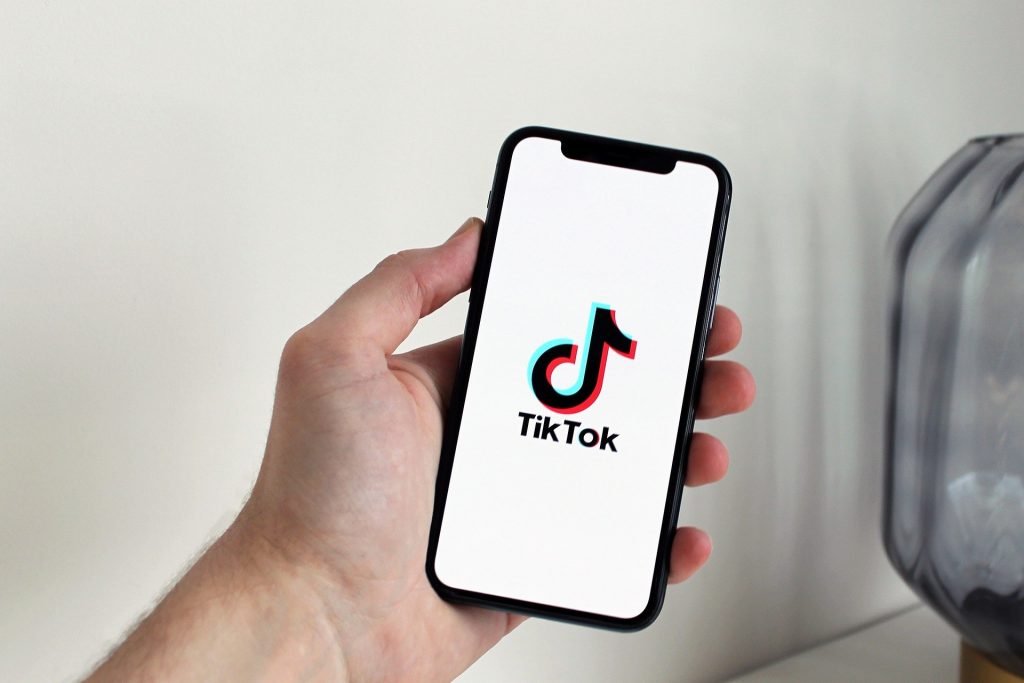
Everybody knows the feeling when you’ve been spending too much time on your phone, often specifically that one app that manages to keep you engaged for way too long every day which you then bravely decide to delete only to redownload it 2 days later because, what if you’re missing out on something?! For me, this app is TikTok. I’m sure that all TikTok users can agree, the app is highly addictive. You open the app, often just out of habit and then if you don’t watch out you’ll spend 3 hours just mindlessly scrolling and scrolling and scrolling…. Although I fear this will not be the last time I’ll reinstall the app only to delete it a month later, I am very interested in why this app in particular manages to be so addictive, so here I am writing an article about it!
To find out why I keep coming back and back again to TikTok, I read some articles which discuss different reasonings for the addictiveness of the app and I also analysed my own behaviour and my personal arguments as to why I keep reinstalling and using the app.
Algorithm and the Brain

Everybody that’s involved in social media, may it be only consuming content or actually creating some as well, knows about “the Algorithm”. In principal, an algorithm is simply a set of instructions given to a computer which then follows the instructions in order to complete a task. However, the algorithms used by todays big social media companies such as Instagram, Youtube and TikTok are a little more complex than this, these algorithms are run by AI and analyse your data which could be your watchtime on a certain video but also the country that you are watching from in order to predict certain types of content that are most likely to keep you engaged on the app or website longer (to earn more money from you). These algorithms are incredibly complex, highly secretive and are changed often pretty regulary. Most apps let you pick your content first off of which they can then recommend new content, however TikTok runs on recommendations from the beginning. At TikTok the way you view content is by scrolling down which means that you have one piece of content in front of you at all times, the algorithm works extremely fast and only after an hour or so of using the app it is able to curate your ‘ForYou’ page pretty accurately. Many TikTok users themselves joke and talk about how extremely accurately the app knows your most obscure interests. Through this algorithm, users keep engaging in with the platform for a long time as almost every piece of content is to their liking. Also, the way the app works functions like a slot machine, giving you small dopamine hits every time you like a video you see. Obviously your brain likes these little dopamine hits, keeping you scrolling because what if the next video will give you another hit?
#Frogtok and FOMO
Another reason that might lead to the high engagement rate of the app might be the extremely active online culture on TikTok. Not only the amount of creators is enormous, there is also a wide variety in the type of creator, there is nearly no concept for which there isn’t a community on TikTok, from #FrogTikTok (a community entirely revolving around frogs) to #LittleLadTikTok (a community surrounding a specific obscure meme on TikTok), there is truly a community for all. The site features musicians, artists, activists and more. Many creators can even create a name through the platform, for example Lil Nas X, who earned his fame largely through a TikTok trend involving his song, Old Town Road, and who has now become one of the biggest popstars in the game. The communities on TikTok are exciting to partake in and can have a lot of positive influence on a person. Take #BookTok (a community for book recommendations), which inspired many young people to pick up reading again or maybe for the first time not out of school obligation but for fun. However, these communities and the large active engagement of creators can also lead unnecessary FOMO (Fear Of Missing Out) when you aren’t engaging with the app let alone when you decide to deinstall it altogether.
In the end, like most things, I believe that the addictive nature of TikTok is a combination of these things (and probably more). At least, for me, this is the case. Personally, my TikTok ‘ForYou-page’ is a mix of entertainment-based content showing me new musicians that follow my musical preferences, art that I might enjoy and just funny memes that I might laugh at as well as incorporating activist creators which keep me in the loop on the newest developments in activism. Although these communities are something I enjoy, the negative consequences such as addictive behaviour and just a lot of time lost are not worth it, or at least not until I inevitably re-download the app once again.
Articles used:
https://medium.com/dataseries/how-tiktok-is-addictive-1e53dec10867
https://cornellsun.com/2020/02/09/nguyen-the-terrifyingly-tantalizing-trend-thats-tiktok/
https://www.newyorker.com/magazine/2019/09/30/how-tiktok-holds-our-attention
https://www.volkskrant.nl/cultuur-media/kijk-nou-eens-jongere-leest-boek-juist-door-tiktok~beb3d675/
https://www.nytimes.com/2019/03/10/style/what-is-tik-tok.html
https://www.bbc.com/culture/article/20201216-how-tiktok-changed-the-world-in-2020
https://www.wired.com/story/tiktok-finally-explains-for-you-algorithm-works/
https://www.wsj.com/articles/tiktok-algorithm-video-investigation-11626877477



Hi Roos, I would suggest checking out Robert Sapolsky on YouTube if you want to know more about why we keep deleting and redownloading same apps again and again.
FYI, my presentation will touch upon the similar matters as mentioned in your blog post. Make sure to attend! 👀